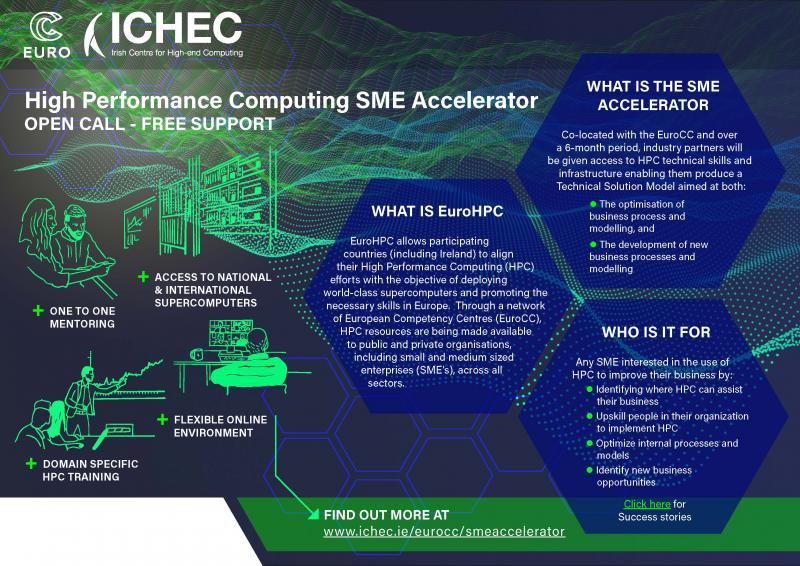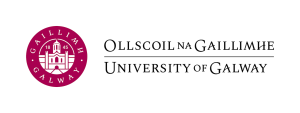EuroCC_Ireland: Projects in four key sectors to receive HPC and AI skills transfer

EuroCC_Ireland SME Accelerator
Strong interest by Irish organisations in the EuroCC SME Accelerator has shown demand for skills development in HPC and AI is robust. Over forty organisations attended a webinar on 7th April during which the first four companies selected to take part in the SME Accelerator were announced. Representing sectors from Construction, Agriculture and Biology to Earth Observation the companies chosen illustrate that application of HPC and AI is becoming more mainstream across the economy. The companies which will participate in the first SME Accelerator are:
- Telenostic
- Ubotica
- Evercam, and
- Nuritas
Peter Woods, ICHEC, Business Development lead said, "We are very excited to have these projects on board as part of EuroCC_Ireland and look forward to working with the companies on their ideas. All four of the projects will kick off in May and will last for 6 months. EuroCC_Ireland will provide technical resources and skills development in HPC and AI to each organisation over this period."
Clare Hughes, CEO, Telenostic presented details of a project which will use HPC to improve the image analysis of animal infection testing by introducing egg/oocyst masking and sizing as part of the analysis pipeline.
Brian Quinn, Ubotica, discussed the Ubotica project which will use AI embedded on satellites for cloud detection. Ubotica's project will demonstrate how using AI and HPDA the resulting algorithm will ensure only relevant information is transmitted back from space freeing up expensive and limited bandwidth.
Zuzanna Stefanska from Evercam presented their project which will integrate HPC and HPDA into their current offerings to combine easily retrievable and searchable recording, live streaming, and BIM integration, with multiple-camera volumetric view allowing the users seamless and interactive ability to move virtually around the construction site, while still keeping low latency and high frame rates. Evercam believes that this project is the first application of HPC in the construction domain.
Nuritas will take advantage of the access that the EuroCC provides to some of the largest supercomputers. Hansel Gomez presented their project which will examine the applicability of quantum computing models and methods for the simulation of chemistry and molecular processes, specifically analysing peptides, which are used in drug-discovery.
As part of EuroHPC some of the largest supercomputers in the world are currently under construction, including the LUMI consortium hosted in Finland which will have a theoretical peak performance of 550 petaflops. All organisations that engage with the EuroCC can be provided access to use these machines should their project warrant this processing power. Any processing used may be charged on a cost recovery basis which will be decided on a case by case basis
Also presenting Chris Johnson coordinator of SHAPE, a pan-European programme that promotes High Performance Computing and adoption by SMEs which is supported as part of the PRACE initiative. Johnson described how SHAPE has assisted many companies to get onto the HPC ladder and detailed a number of successful SME case studies demonstrating successful integration of HPC / HPDA and AI into business processes.
EuroCC also has an educational strand and Simon Wong, Education, Training and Outreach Programme Manager at ICHEC gave an overview of courses that will be available to organisations nationally over the coming months.
If you missed the webinar a full recording can be found here.
Applications for the next phase of the Accelerator are currently being accepted so if you have any queries please contact Peter Woods or submit your application here




